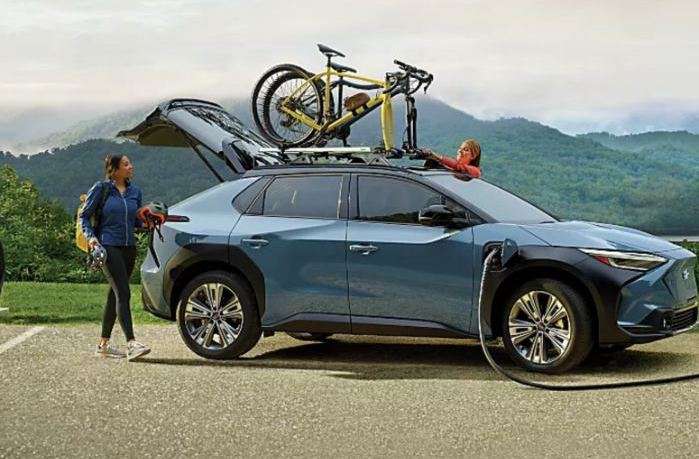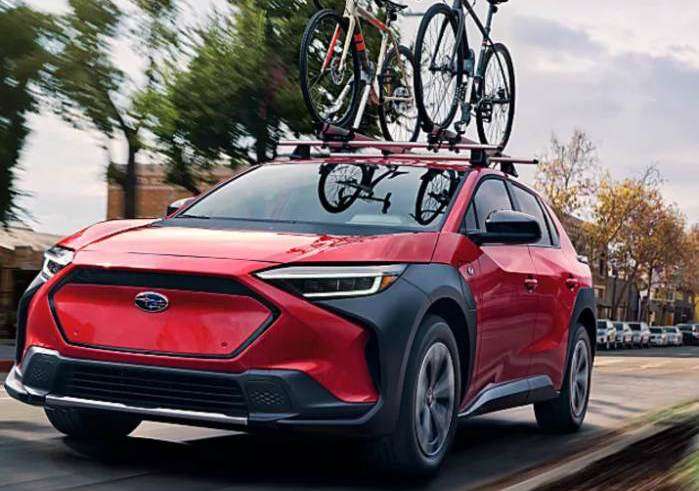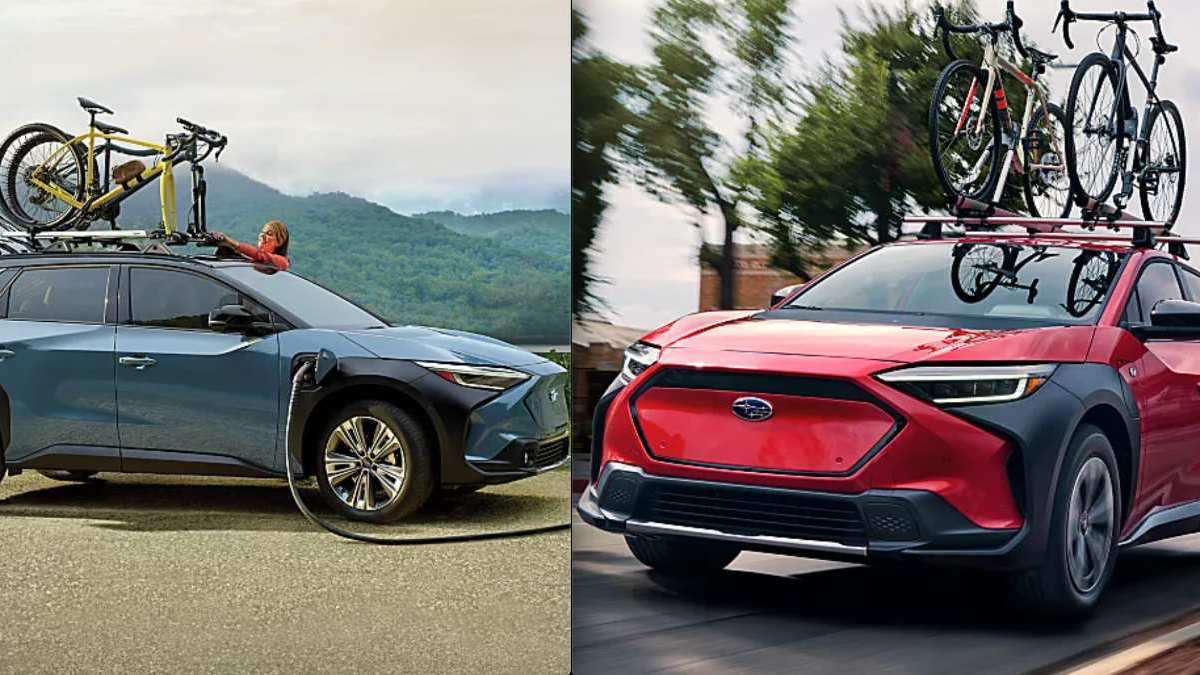Subaru has been sitting on the sidelines watching to see how its all-new Subaru Solterra EV would sell around the globe. And the response to Subaru Corporation’s first EV has been overwhelmingly positive. Because the automotive world is now running full speed ahead with electric vehicle production, Subaru says it’s time they have a rapid ramp-up in its EV production.
A recent report from Automotive News (by subscription) says that first, Subaru will now offer four new all-electric Subaru SUVs by 2026. And the new EVs will be sold in the U.S., where they sell about 70 percent of all its models. In the accelerated EV ramp-up, Subaru wants to sell 200,000 EVs a year globally starting in 2026. Subaru said it will source batteries for the new vehicles through its alliance with Toyota Motors.

But Subaru also says they will sell 400,000 EVs by 2028. They will accomplish the new EV goal with two new EV production assembly lines at their Japanese plants.
The report says Subaru will add the capacity to build 400,000 full-electric cars in Japan by 2028. The rapid expansion plan signals a new goal by Subaru to have 40 percent of its global sales from electrified vehicles by the decade’s end.

The announcement was made at Subaru’s fiscal year-end press conference. New incoming Subaru President and CEO Atsushi Osaki said they will roll out four all-electric crossovers by the end of 2026, a jump from the single nameplate, the Subaru Solterra, in the brand’s current portfolio.
Osaki outlined the stepped-up electrification plans last week and said the new EVs are expected to be offered to its U.S. customers. Under the ramped-up EV plan, Subaru will add a dedicated EV assembly line at its Oizumi plant in Japan as early as 2027, with a capacity for 200,000 vehicles a year.
The report says it will complement an EV assembly line at the nearby Yajima plant that will deliver capacity for 200,000 EVs a year from around 2026. Combined, the two new manufacturing lines will enable output of 400,000 EVs a year from 2028, Subaru said.
Subaru will now build its EVs themselves and will not rely on Toyota to manufacture them like they do the Solterra EV.
Subaru’s in-house production of electric vehicles will be centered at its Gunma manufacturing complex north of Tokyo. It will begin by 2026 at Gunma’s Yajima plant on a mixed production line with internal combustion vehicles.
And by 2027, it will turn out EVs from a dedicated line planned for the Oizumi plant in Gunma, which currently makes Subaru’s Boxer engines and CVT automatic transmissions.
Subaru is done sitting on the sidelines and will now have a rapid ramp-up of its all-electric vehicle manufacturing, with 400,000 new EVs being sold by 2028. Stay tuned.
You Might Also Like: The All-New 2024 Subaru Forester Is Next New Launch And What’s Coming
Denis Flierl has invested over 30 years in the automotive industry in a consulting role working with every major car brand. He is an accredited member of the Rocky Mountain Automotive Press. Check out Subaru Report, where he covers all of the Japanese automaker's models. More stories can be found on the Torque News Subaru page. Follow Denis on Facebook, Twitter, and Instagram.
Subaru Report - We’ve got you covered! Check back tomorrow for more unique, informative SUBARU news, reviews, and previews you can trust.
Leave your comments below, share the article with friends, and tweet it out to your followers!
Photo credit: Subaru USA






Comments
Will Subaru be able to copy
Permalink
Will Subaru be able to copy/paste/mod all of the technology in the Solterra to their new EV models? Or are there IP constraints with the Toyota technology IP in the Solterra?
Subaru has created their own niche in the car market with their boxer engines and their symmetric AWD. They might find themselves having to create a new niche with the EV models. How will they differentiate themselves from other EV models from larger car manufacturers? It will be particularly difficult given how far behind they are compared to other car manufacturers.